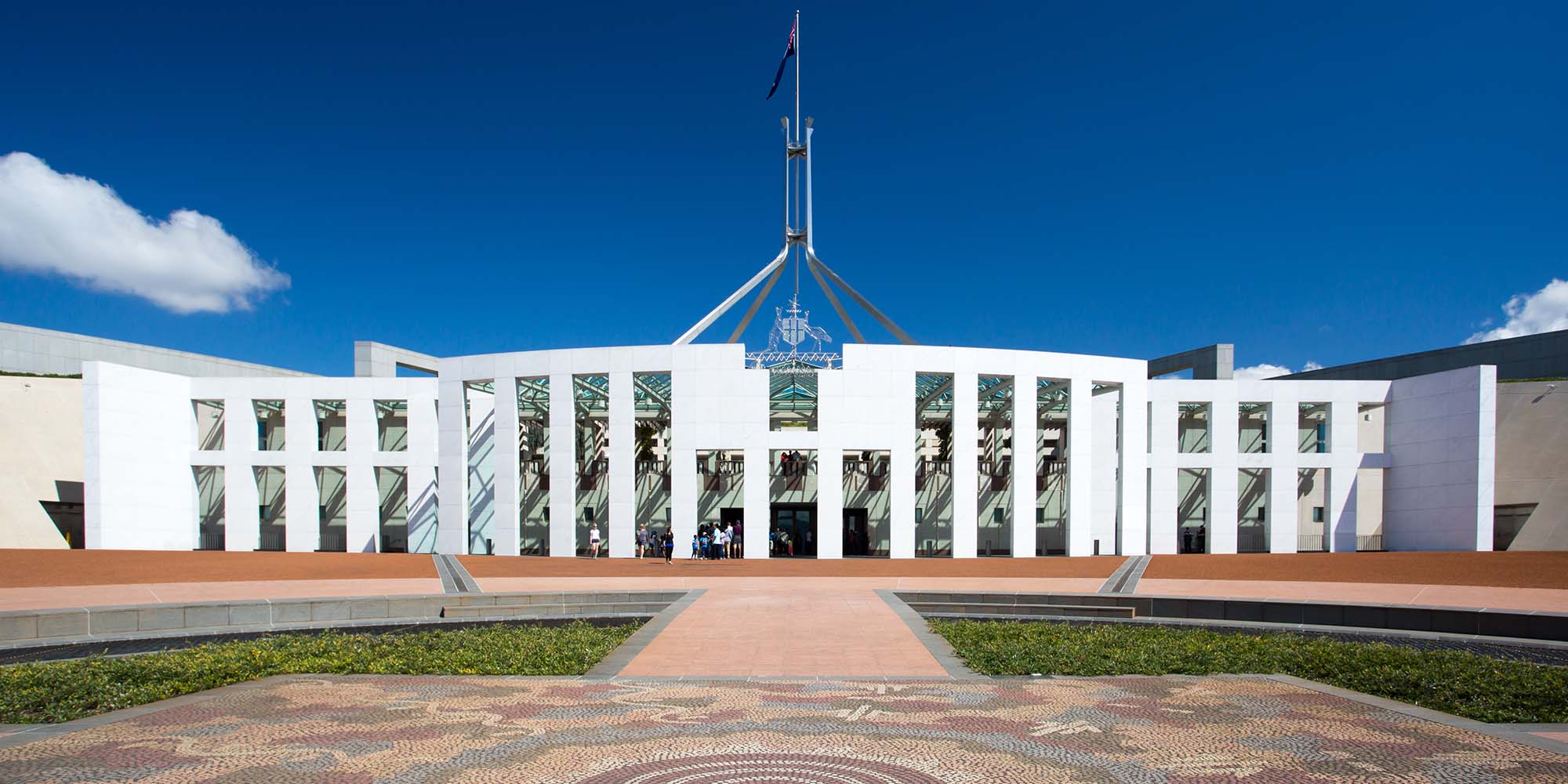The Federal Treasurer, Dr. Jim Chalmers, handed down the Federal Budget on May 14, 2024
The Budget forecasts a surplus of $9.3 billion (0.3% of GDP) in 2023-24, following a surplus of $22.1 billion in 2022-23. This is an improvement of $10.5 billion since the Mid-Year Economic and Fiscal Outlook and would represent the first back-to-back surpluses in almost two decades.
Gross debt-to-GDP is forecasted to be lower over the next decade and is projected to peak at 35.2% of GDP in 2026-27.
Following our review of the Federal Budget papers we are pleased to provide the following summary of key tax updates and Government spending initiatives most likely to impact our clients.
Income Tax: Aussies vs The World

The major change to income tax is the commencement of the Stage 3 Tax Cuts on 1 July 2024, incorporating the changes announced by the Albanese government in January 2024. These cuts are summarised in the below table.
2023-24 | 2024-25 | ||
Thresholds ($) | Rates (%) | Thresholds ($) | Rates (%) |
Nil – 18,200 | Nil | Nil – 18,200 | Nil |
18,201 – 45,000 | 19% | 18,201 – 45,000 | 16% |
45,001 – 120,000 | 32.5% | 45,001 – 135,000 | 30% |
120,001 – 180,000 | 37% | 135,001 – 190,000 | 37% |
180,001+ | 45% | 190,001+ | 45% |
These cuts follow an increase in the income tax rate from 23.0% in 2022 to 24.9% in 2023 for a single Australian without children on the average wage. This increase was primarily driven by bracket creep and the end of the Low and Middle Income Tax Offset on 30 June 2022. At face value, it is the largest increase from 2022 to 2023 out of all 38 OCED countries.
However, as pointed out last month by Matt Grudnoff, a senior economist at the Australia Institute, these figures do not accurately capture the impact of social security contributions. When properly accounting for these contributions by expressing tax as a percentage of labour costs, Australia’s rate of 29.2% positions it as the 9th-lowest taxed OECD country, significantly better than the adjusted OECD average of 34.8%. Australia is in a similar position when comparing tax-to-GDP ratios, where Australia’s 29.5% is also positioned ninth-lowest in the OECD compared to the 34.2% OECD average.
Small Business: Instant Asset Write Off Extended
The Government has announced a 12-month extension to the Instant Asset Write Off for Small Businesses allowing an immediate deduction for the cost of eligible assets up to $20,000 through to 30 June 2025.
Originally the instant asset write-off limit was $1,000 for eligible assets, over the years this limit has gone through multiple changes. Over the Covid era additional measures were introduced via the Temporary Full Expensing and Accelerated Depreciation provisions. When these provisions ceased on 30 June 2023, the Government via the 2023-24 Budget, announced an increase to the instant asset write-off threshold to $20,000. This was originally scheduled to end on 30 June 2024, however the legislation never received royal assent.
Going forward, small businesses with an aggregated annual turnover of less than $10 million will be able to immediately deduct the full cost of eligible assets costing less than $20,000 that are first used or installed ready for use by 30 June 2025. The asset threshold is applied on a per-asset basis, so small businesses can instantly write off multiple assets. This can be applied to new and second-hand assets.
Assets valued at $20,000 or more (which cannot be immediately deducted) can continue to be placed into the small business depreciation pool, where they are depreciated at 15% in the first income year and 30% each income year thereafter.
Future Made In Australia
A catchy headline but what does a ‘Future Made In Australia’ look like for business owners?

Supercharging renewable energy
- Hydrogen Production Tax Incentive – $6.7 billion over ten years from 2024-25 towards a $2 incentive per kg of renewable hydrogen produced.
- Hydrogen Headstart Program – $1.3 billion over ten years from 2024-25 to bridge the green premium for early-mover renewable hydrogen projects.
- Future Made in Australia Innovation Fund – $1.7 billion to support innovation, commercialisation, manufacture and deployment of renewable energy technologies.
- Australian Renewable Energy Agency – $1.5 billion over seven years from 2027-28 to supercharge core investments in renewable energy and related technologies.
- Solar Sunshot Program – $835 million over ten years from 2024-25 to promote the development of solar manufacturing capabilities and improve the industry’s supply chain resilience.
- Workforce and Trade Partnerships– $218.4 million over eight years to support and develop a skilled and diverse workforce for the renewable energy sector.
Accelerating industry capability
- Critical Minerals Production Tax Incentive – $7.1 billion over 11 years from 2023-24 towards a production incentive valued at 10% of relevant processing and refining costs for all 31 critical minerals.
- Battery Breakthrough Initiative – $523 million over seven years from 2024-25 to promote the development of battery manufacturing capabilities.
- $1.7 billion in funding including initiatives to develop quantum computing capabilities, mapping of Australia’s national groundwater systems and next generation Landsat satellites.

International Tax Ups & Downs

On 8 April 2024, the Treasury Laws Amendment (Making Multinationals Pay Their Fair Share – Integrity and Transparency) Bill 2023 was passed by Federal Parliament, strengthening Australia’s thin capitalisation rules. These rules introduced earnings-based tests to limit debt deductions, moving away from the previous asset-based tests.The Budget proposes amendments to the new rules to exempt Australian plantation forestry entities from the requirement to apply the new earnings-based tests, allowing these entities to continue to apply the former asset-based tests.
The Budget proposes amendments to the new rules to exempt Australian plantation forestry entities from the requirement to apply the new earnings-based tests, allowing these entities to continue to apply the former asset-based tests.
The Budget also proposes to discontinue the measure Denying deductions for payments relating to intangibles held in low or no tax jurisdiction announced in the 2022-23 October Budget. These issues will instead be addressed through the Global Minimum Tax and Domestic Minimum Tax.
From 1 July 2026, taxpayers which are part of a group with more than $1 billion in global turnover, who have mischaracterised or undervalued royalty payments to which royalty withholding tax would otherwise apply, will be subject to a penalty.
Foreign Resident CGT Regime Significantly Strengthened

The Budget proposes significant amendments to the foreign resident capital gains tax (CGT) regime, applying to CGT events occurring on or after 1 July 2025. This is estimated to increase receipts by $600 million. The key amendments include:
- Clarifying and broadening the types of assets that foreign residents are subject to CGT
- Amending the point-in-time principal asset test to a 365-day testing period
- Requiring foreign residents disposing of shares and other membership interests exceeding $20 million in value to notify the ATO prior to the transaction being executed
The Government will consult on the implementation details of this measure.
Avoiding Anti-Avoidance

As a part of the 2023-24 Budget in May 2023, the Government announced the general anti-avoidance rules will be widened to include schemes that reduce tax paid in Australia by accessing a lower withholding tax on income paid to foreign residents and achieve an Australian income tax benefit to commence on 1 July 2024.
This Budget proposes to amend the start date of this measure to income years commencing on or after the day the amending legislation receives Royal Assent.
Superannuation Silence

A glaring omission from the 2024/25 budget is an update on the proposed changes to superannuation announced in the 2023/24 budget, including the imposition of the Division 296 tax targeting superannuation balances over $3 million, focusing on unrealised gains. These changes have still not been legislated, with the bills being referred to the Senate Economics Legislation Committee on 10 May 2024.
We note there have been proposals to reduce the $3 million threshold down to $2 million, and there is much chatter about the unfairness of tax being imposed on unrealised gains.
For more details and expert insights, check out the Hall Chadwick 2024-2025 Federal Budget review:
Download Our Federal Budget Update
Stay tuned to our social media channels for ongoing updates.
If you would like to know more about the 2024 Federal Budget and its potential implications, please reach out to your trusted Hall Chadwick advisor.







